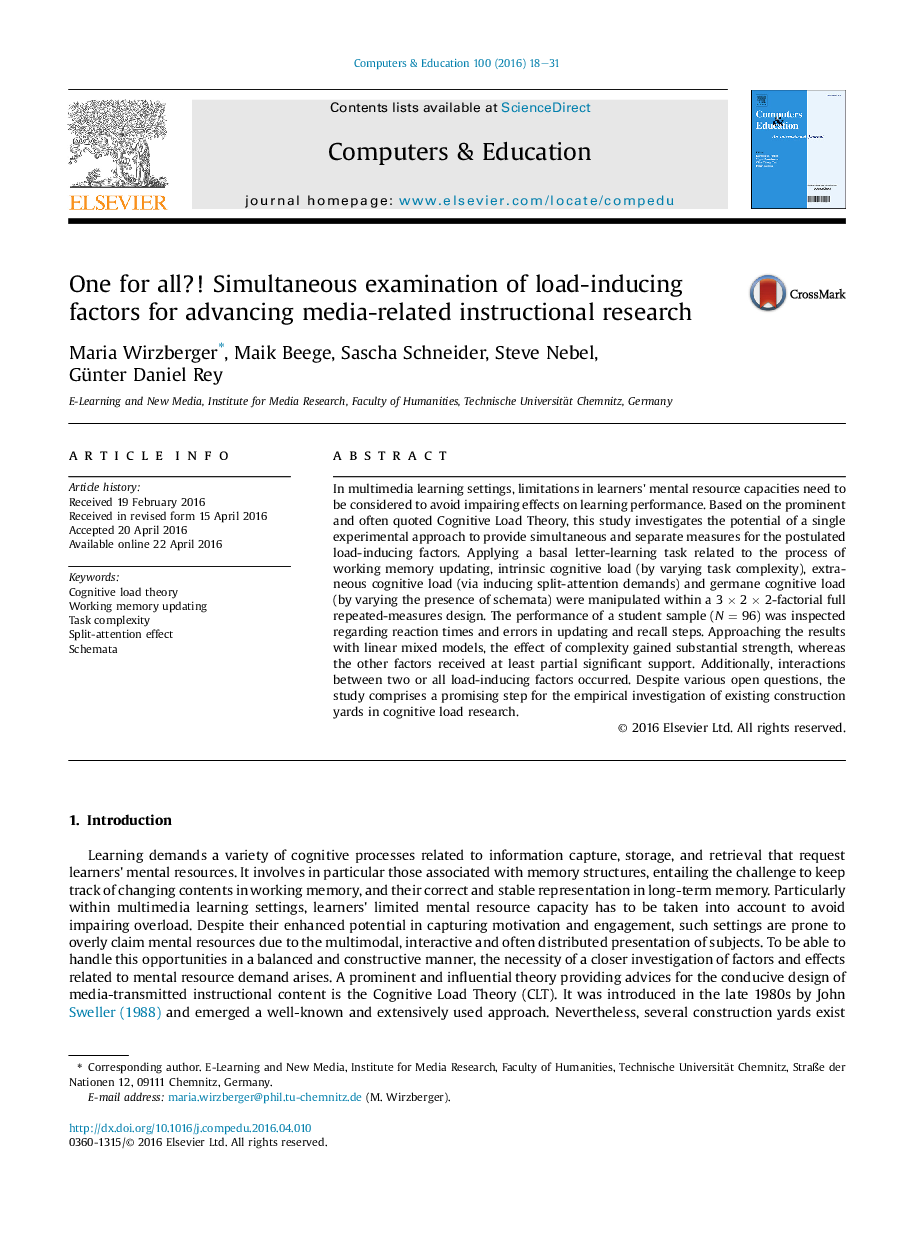| Article ID | Journal | Published Year | Pages | File Type |
|---|---|---|---|---|
| 348149 | Computers & Education | 2016 | 14 Pages |
•Effects of three load factors are inspected at once by experimental manipulation.•In particular task complexity as measure of intrinsic load achieves overall significance.•Expected influences of split attention and schema presence receive some support as well.•Interactions query separate and additive contributions of inspected load-inducing factors.•Results are explainable with regard to mental operations and aptitude variables.
In multimedia learning settings, limitations in learners' mental resource capacities need to be considered to avoid impairing effects on learning performance. Based on the prominent and often quoted Cognitive Load Theory, this study investigates the potential of a single experimental approach to provide simultaneous and separate measures for the postulated load-inducing factors. Applying a basal letter-learning task related to the process of working memory updating, intrinsic cognitive load (by varying task complexity), extraneous cognitive load (via inducing split-attention demands) and germane cognitive load (by varying the presence of schemata) were manipulated within a 3 × 2 × 2-factorial full repeated-measures design. The performance of a student sample (N = 96) was inspected regarding reaction times and errors in updating and recall steps. Approaching the results with linear mixed models, the effect of complexity gained substantial strength, whereas the other factors received at least partial significant support. Additionally, interactions between two or all load-inducing factors occurred. Despite various open questions, the study comprises a promising step for the empirical investigation of existing construction yards in cognitive load research.
